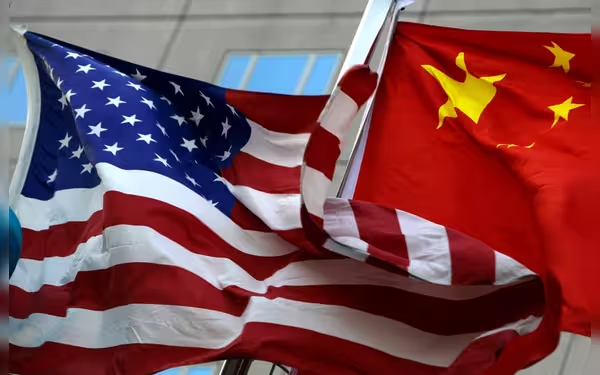Saturday, November 16, 2024 03:21 PM
US Imposes New Tariffs on Chinese Imports
- Biden administration announces steep tariffs on Chinese imports.
- 100% duty on electric vehicles imported from China.
- Concerns rise over potential retaliation from China.
 Image Credits: tribune.com.pk
Image Credits: tribune.com.pkThe US imposes new tariffs on Chinese imports, including a 100% duty on electric vehicles, escalating trade tensions between the two nations.
The ongoing trade tensions between the United States and China have taken a significant turn as the Biden administration has announced new tariffs on Chinese imports. This move is part of a broader strategy to protect American industries from what the U.S. government describes as China’s state-driven excess production capacity. The tariffs are designed to bolster domestic manufacturing and ensure that American companies can compete fairly in the global market.
On Friday, the U.S. Trade Representative (USTR) confirmed that steep tariff hikes would be implemented, including a staggering 100% duty on electric vehicles (EVs) imported from China. This means that if a Chinese electric vehicle costs $30,000, American consumers would now have to pay $60,000 due to the new tariffs. Additionally, a 50% tariff will be placed on solar cells, while 25% tariffs will affect steel, aluminum, EV batteries, and key minerals. These tariffs are set to take effect on September 27, marking a significant escalation in the trade conflict.
The rationale behind these tariffs is to protect strategic domestic industries that are vital for the U.S. economy. By imposing these duties, the Biden administration aims to reduce reliance on Chinese imports and encourage the growth of local manufacturing. This is particularly important in sectors like electric vehicles and renewable energy, where the U.S. seeks to establish a competitive edge.
However, the imposition of such high tariffs raises concerns about potential retaliation from China. Historically, trade wars have led to increased prices for consumers and can disrupt global supply chains. As the U.S. and China are two of the largest economies in the world, any escalation in trade tensions could have far-reaching implications not just for these two nations, but for the global economy as a whole.
While the new tariffs may provide short-term protection for American industries, they also pose risks that could affect consumers and the economy in the long run. It remains to be seen how China will respond and what impact these tariffs will have on the relationship between the two countries. As the situation develops, it is crucial for stakeholders to stay informed and consider the broader implications of these trade policies.













